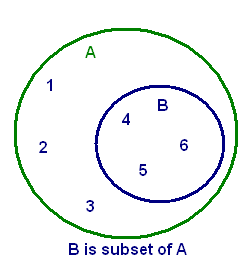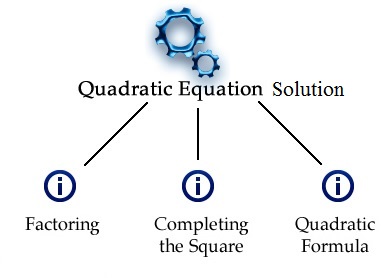Exercise 1.1 (Math 10)
Question 1. Write the following quadratic equations in the standard form and point out pure quadratic equations.
$ \pmb{ (i). \;\;\;\;\; (x + 7) (x − 3) = -7} $
Solution:
The given quadratic equation is
$$ (x + 7) (x − 3) = -7 \;\;\;\;\; (i) $$
Multiplying the expressions $ (x + 7) $ and $ (x − 3) $ in equation (i) with each other, we have
$$ x^2 + 7x − 3x − 21 = -7 $$
$$ \Rightarrow x^2 + 4x − 21 = -7 $$
Now adding 7 on both sides of the above equation and get
$$ x^2 + 4x − 21 + 7 = -7 + 7 $$
$$ \Rightarrow x^2 + 4x − 14 = 0 \;\;\;\;\; (ii) $$
Equation (ii) is in the standard form of the quadratic equation but it is not a pure quadratic equation because b ≠ 0.
$ \pmb{ (ii). \;\;\;\;\; {x^2 + 4 \over 3} − {x \over 7} = 1} $
Solution:
The given quadratic equation is
$$ {x^2 + 4 \over 3} − {x \over 7} = 1 \;\;\;\;\; (i) $$
Taking LCM (Least Common Multiple) of 3 and 7 that is 21, now multiply both sides of the equation (i) by 21, we have
$$ 21({x^2 + 4 \over 3}) − 21({x \over 7}) = 21(1) $$
$$ \Rightarrow 7(x^2 + 4) − 3x = 21 $$
$$ \Rightarrow 7x^2 + 28 − 3x = 21 $$
$$ \Rightarrow 7x^2 − 3x + 28 = 21 $$
Now subtracting 21 from both sides of the above equation and get
$$ 7x^2 − 3x + 28 − 21 = 21 − 21 $$
$$ \Rightarrow 7x^2 − 3x + 7 = 0 \;\;\;\;\; (ii) $$
Equation (ii) is in the standard form of the quadratic equation but it is not a pure quadratic equation because b ≠ 0.
$ \pmb{ (iii). \;\;\;\;\; {x \over x + 1} + {x + 1 \over x} = 6 } $
Solution:
The given quadratic equation is
$$ {x \over x + 1} + {x + 1 \over x} = 6 \;\;\;\;\; (i) $$
By solving the expression $ {x \over x + 1} + {x + 1 \over x} $ in equation (i), we have
$$ {x^2 + x^2 + 2x + 1 \over x(x + 1)} = 6 $$
$$ \Rightarrow {2x^2 + 2x + 1 \over x^2 + x} = 6 $$
Now multiplying both sides of the above equation by $ x^2 + x $, we get
$$ 2x^2 + 2x + 1 = 6(x^2 + x) $$
$$ \Rightarrow 2x^2 + 2x + 1 = 6x^2 + 6x $$
$$ \Rightarrow 6x^2 − 2x^2 + 6x − 2x − 1 = 0 $$
$$ \Rightarrow 4x^2 + 4x − 1 = 0 \;\;\;\;\; (ii) $$
Equation (ii) is in the standard form of the quadratic equation but it is not a pure quadratic equation because b ≠ 0.
$ \pmb{ (iv). \;\;\;\;\; {x + 4 \over x − 2} − {x − 2 \over x} + 4 = 0 } $
Solution:
The given quadratic equation is
$$ {x + 4 \over x − 2} − {x − 2 \over x} + 4 = 0 \;\;\;\;\; (i) $$
Multiplying both sides of equation (i) by $ {(x − 2) (x)} $ (i.e. LCM of (x − 2) and x), we get
$$ (x − 2) (x){x + 4 \over x − 2} − (x − 2) (x){x − 2 \over x} + 4(x − 2) (x) = 0(x − 2) (x) $$
$$ \Rightarrow (x) (x + 4) − (x − 2) (x − 2) + 4(x^2 − 2x) = 0 $$
$$ \Rightarrow x^2 + 4x − (x^2 − 4x + 4) + 4x^2 − 8x = 0 $$
$$ \Rightarrow x^2 + 4x − x^2 + 4x − 4 + 4x^2 − 8x = 0 $$
$$ \Rightarrow 4x^2 − 4 = 0 $$
Taking 4 common in above equation, we have
$$ x^2 − 1 = 0 \;\;\;\;\; (ii) $$
Equation (ii) is in the standard form of the quadratic equation and it is also a pure quadratic equation because b = 0.
$ \pmb{ (v). \;\;\;\;\; {x + 3 \over x + 4} − {x − 5 \over x} = 1 } $
Solution:
The given quadratic equation is
$$ {x + 3 \over x + 4} − {x − 5 \over x} = 1 \;\;\;\;\; (i) $$
Multiplying both sides of equation (i) by $ {(x + 4) (x)} $ (i.e. LCM of (x + 4) and x), we get
$$ (x + 4) (x){x + 3 \over x + 4} − (x + 4) (x){x − 5 \over x} = 1(x + 4) (x) $$
$$ \Rightarrow (x) (x + 3) − (x + 4) (x − 5) = x^2 + 4x $$
$$ \Rightarrow x^2 + 3x − (x^2 + 4x − 5x − 20) = x^2 + 4x $$
$$ \Rightarrow x^2 + 3x − (x^2 − x − 20) = x^2 + 4x $$
$$ \Rightarrow x^2 + 3x − x^2 + x + 20 = x^2 + 4x $$
$$ \Rightarrow 4x + 20 = x^2 + 4x $$
$$ \Rightarrow x^2 + 4x − 4x − 20 = 0 $$
$$ \Rightarrow x^2 − 20 = 0 \;\;\;\;\; (ii) $$
Equation (ii) is in the standard form of the quadratic equation and it is also a pure quadratic equation because b = 0.
$ \pmb{ (vi). \;\;\;\;\; {x + 1 \over x + 2} + {x + 2 \over x+ 3} = {25 \over 12} } $
Solution:
The given quadratic equation is
$$ {x + 1 \over x + 2} + {x + 2 \over x+ 3} = {25 \over 12} \;\;\;\;\; (i) $$
Multiplying both sides of equation (i) by $ {(x + 2) (x + 3) (12)} $ (i.e. LCM of (x + 2), (x + 3) and 12, we get
$$ (x + 2) (x + 3) (12){x + 1 \over x + 2} + (x + 2) (x + 3) (12){x + 2 \over x+ 3} = (x + 2) (x + 3) (12){25 \over 12} $$
$$ \Rightarrow (x + 3) (12) (x + 1) + (x + 2) (12) (x+ 2) = (x + 2) (x + 3) (25) $$
$$ \Rightarrow (12) (x + 3) (x + 1) + (12) (x + 2) (x+ 2) = (25) (x + 2) (x + 3) $$
$$ \Rightarrow (12) (x^2 + 3x + x + 3) + (12) (x^2 + 2x + 2x + 4) = (25) (x^2 + 2x + 3x + 6) $$
$$ \Rightarrow (12) (x^2 + 4x + 3) + (12) (x^2 + 4x + 4) = (25) (x^2 + 5x + 6) $$
$$ \Rightarrow 12x^2 + 48x + 36 + 12x^2 + 48x + 48 = 25x^2 + 125x + 150 $$
By simplifying the above equation, we have
$$ \Rightarrow 24x^2 + 96x + 84 = 25x^2 + 125x + 150 $$
$$ \Rightarrow 24x^2 + 96x + 84 – 25x^2 − 125x − 150 = 0 $$
$$ \Rightarrow – x^2 − 29x − 66 = 0 $$
By taking (−) common, we get
$$ \Rightarrow x^2 + 29x + 66 = 0 \;\;\;\;\; (ii) $$
Equation (ii) is in the standard form of the quadratic equation but it is not a pure quadratic equation because b ≠ 0.








You must be logged in to post a comment.